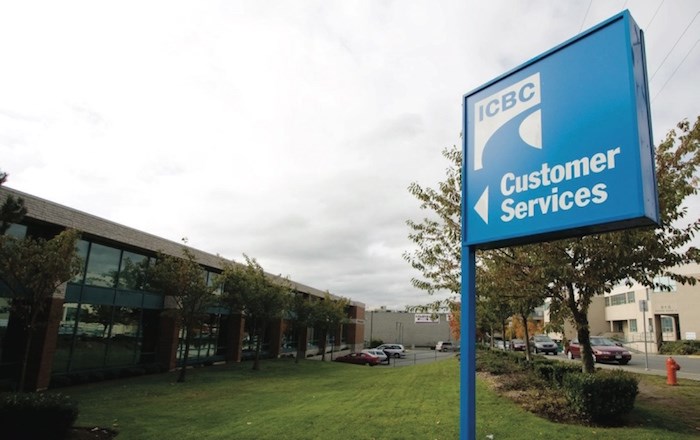 The Insurance Corporation of British Columbia posted a net loss of $860 million in the first nine months of its fiscal year, putting it on track to lose $1.18 billion this year. Photo by Darren Stone/Times Colonist
The Insurance Corporation of British Columbia posted a net loss of $860 million in the first nine months of its fiscal year, putting it on track to lose $1.18 billion this year. Photo by Darren Stone/Times Colonist
BC Supreme Court has told Victoria its changes to the court’s rules in an attempt to slash ICBC’s accident case costs through cutting expert witnesses are unconstitutional.
And, said Attorney General David Eby, it’s a decision that could cost the insurer almost $400 million in cost savings it was attempting to realize in dealing with the public insurer’s debts.
“It’s obviously a challenging decision for us in our reform efforts,” Eby said.
On Nov. 23, 2018, Eby said the provincial auto insurer saw a $1.3 billion net loss in 2017-18, with an expected loss of $890 million this fiscal year. He laid some blame on lawyers “strategically building injury claim values resulting in higher costs borne by ICBC ratepayers.”
Finance Minister Carole James put the blame pedal further to the floor in her November 2018 quarterly financial update, blaming ICBC’s $206 million loss for the period on “mainly increased claims costs.”
Now, Eby said, the government will have to look at either an appeal of the decision or other legislative options to save money.
“This obviously a very disappointing case to read,” Eby said. “It is especially challenging knowing the problem that we face in our justice system with the bloated and excessive adversarial expert system that costs literally tens of thousands of dollars for plaintiffs and defence to deal with.
“Everyone agrees the costs of going to court are too high.”
The attorney general, a lawyer himself, went on to say, “The number of around $400 million comes from the amount that was claimed in a single fiscal year but comes from a number of other years as well.”
He said the savings would have been realized in this fiscal year. “We’ll have to have a look and see what the actual financial impact will be for ICBC and for the province.”
The court said changes to the court’s processes in handling expert witnesses was beyond the scope of Eby’s powers.
In his decision, Chief Justice Christopher Hinkson said Eby’s move encroached on the court's jurisdiction to control its process, power that goes back centuries.
Hinkson said the changed rule “restricts a core function of the court to decide a case fairly upon the evidence adduced by the parties. The effect of the impugned rule is to require the court to play an investigatory function in place of its traditional non-adversarial role, contrary to the principle of party presentation.”
The Trial Lawyers Association of B.C. argued before Hinkson that the rule change would deny litigants the right of access to the court, because a legislative measure creates undue hardship for litigants in obtaining access to justice.
The government argued denying the rule change would limit access to justice, saying such a ruling from the court would constitutionalize an expensive and inefficient trial procedure. The government said such a move would preclude legislatures from modifying civil procedure to respond to the reality of modern trial practice to better serve the goals of accessible dispute resolution.
“My concern is the decision has created a constitutional fence around this broken system,” Eby said.
“We’re still studying the decision to figure out what the next steps are.”


